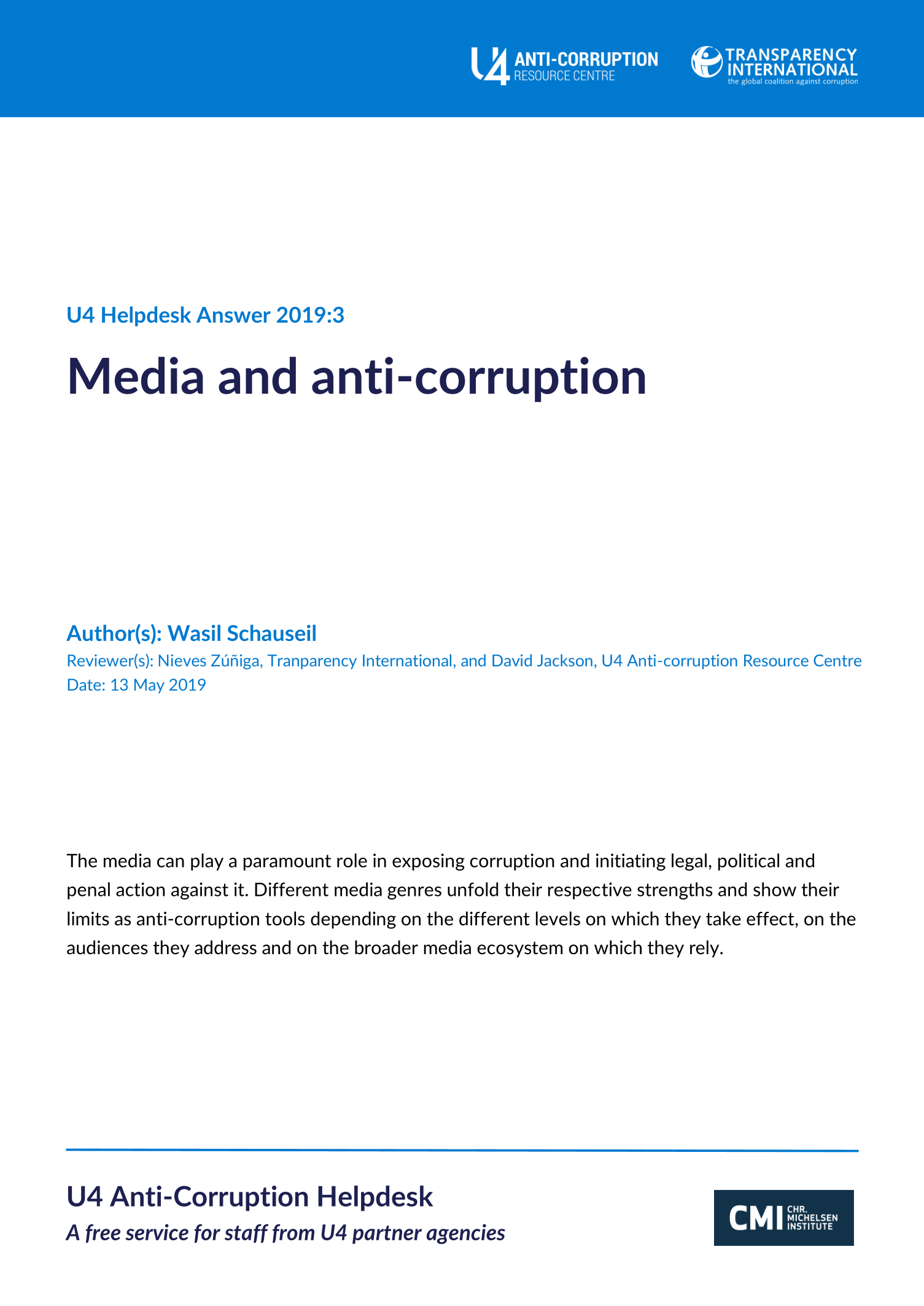Main points
- The media can inform and educate people about the detrimental effects of corruption and, through exposure, increase the political risk of those involved in corrupt practices.
- Fierce competition for audiences means some media outlets aim to entertain and amuse than to inform and mobilise people for reform.
- Professional ethics and skills, protection from oppression and physical abuse, independence, sufficient resources and accessibility are necessary for the media to have an effect on anti-corruption efforts.


